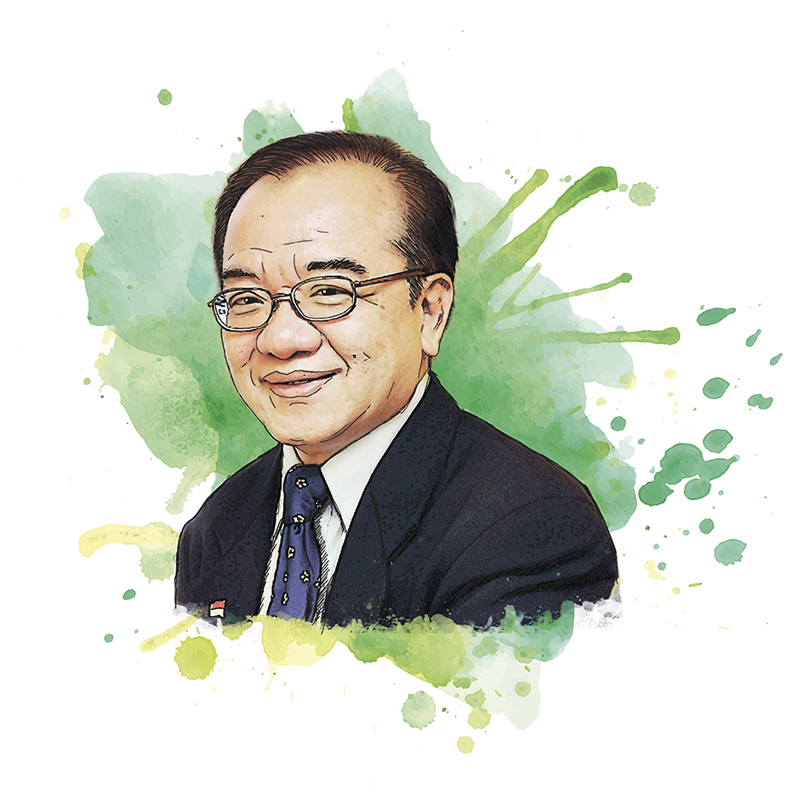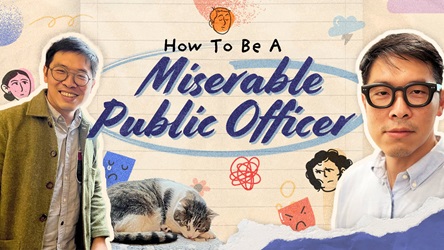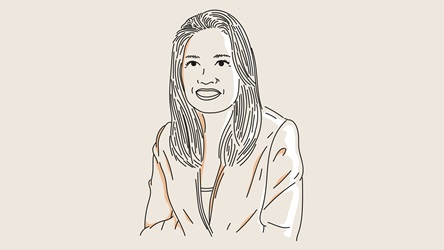Speak Up. It's Your Duty

A letter from Lim Soo Ping
Professor of Accountancy (Practice), Singapore Management University, 2013 - present
Auditor-General of Singapore, 2007 - 2013
Deputy Secretary at various ministries, 1988 - 2007
Engineering Service Officer at the Public Works Department, 1975 - 1988
Professor of Accountancy (Practice), Singapore Management University, 2013 - present
Auditor-General of Singapore, 2007 - 2013
Deputy Secretary at various ministries, 1988 - 2007
Engineering Service Officer at the Public Works Department, 1975 - 1988
DEAR YOUNG OFFICER,
It was a Saturday morning in 1989 when I had my first meeting with Professor S Jayakumar, then Minister for Home Affairs, and the ministry’s senior management. I was in my first posting after joining the Administrative Service mid-career.
The Minister turned to me and asked for my comment on an immigration issue. I gave my view but with the caveat that I was just one week old in the ministry. The Minister responded: “Precisely because you are new, you may well have the best view.”
It was a lesson for me on the importance of listening to all views, and of encouraging officers to speak up, as speaking up does not come naturally to most of us.
In the 1970s, an articulate colleague had taunted me: “Why are you always so quiet?” That proved a turning point; I was determined that I would change.
Over the years, I made it a point to try to speak up. I started with small or casual meetings that were less intimidating. I also found it helpful to be thoroughly familiar with the issues to be discussed and jot down points that I could make at meetings. In short, speaking up requires both practice and preparation.
Public officers in general do want to share their views and ideas. But I have observed that it is usually the same few officers who would speak up. The rest would remain quiet perhaps out of fear that what they say may be deemed wrong or even silly. But why must that be so?
There is no such thing as a wrong view. A view expressed is based on your perspectives of the issue at hand and those, in turn, depend on your own knowledge, life and work experiences, and value system. In encouraging my SMU students to speak up, I use the analogy of two passengers sitting on different sides in a bus. Looking out of the windows on their side, each would invariably have a different perspective of the same scenery. Can either of them say that the other’s view is wrong?
It was a Saturday morning in 1989 when I had my first meeting with Professor S Jayakumar, then Minister for Home Affairs, and the ministry’s senior management. I was in my first posting after joining the Administrative Service mid-career.
The Minister turned to me and asked for my comment on an immigration issue. I gave my view but with the caveat that I was just one week old in the ministry. The Minister responded: “Precisely because you are new, you may well have the best view.”
It was a lesson for me on the importance of listening to all views, and of encouraging officers to speak up, as speaking up does not come naturally to most of us.
In the 1970s, an articulate colleague had taunted me: “Why are you always so quiet?” That proved a turning point; I was determined that I would change.
Over the years, I made it a point to try to speak up. I started with small or casual meetings that were less intimidating. I also found it helpful to be thoroughly familiar with the issues to be discussed and jot down points that I could make at meetings. In short, speaking up requires both practice and preparation.
Public officers in general do want to share their views and ideas. But I have observed that it is usually the same few officers who would speak up. The rest would remain quiet perhaps out of fear that what they say may be deemed wrong or even silly. But why must that be so?
There is no such thing as a wrong view. A view expressed is based on your perspectives of the issue at hand and those, in turn, depend on your own knowledge, life and work experiences, and value system. In encouraging my SMU students to speak up, I use the analogy of two passengers sitting on different sides in a bus. Looking out of the windows on their side, each would invariably have a different perspective of the same scenery. Can either of them say that the other’s view is wrong?

One should not refrain from contributing an idea or suggestion that is radically different.
In my previous work, I had encountered differing views on various issues such as the penalties and rehabilitation programmes for drug abuse. The diversity of perspectives makes for a more thorough discussion, thereby leading to better decision-making.
Once, I expressed reservation about a proposal to set up a company to promote young artists’ works. I felt that its business model was not sustainable. Despite being the lone voice, my view had an effect: it was eventually decided that the proposal would not proceed until a better business model was found.
One should not refrain from contributing an idea or suggestion that is radically different. If everybody agrees with your idea, it is at best a good idea. But if most people sneer at it, you may well have hit on an innovative idea that challenges conventional wisdom.
One should also not hold back giving general comments on matters outside one’s area of expertise. At a technical discussion between Minister Jayakumar and the ministry’s legal officer on matters of law in anti-narcotics legislation, I could only chip in at one point. When I did so, the Minister told the legal officer: “Listen carefully. Here is a non-lawyer speaking.” I was glad that my input from a layman’s perspective was brought to bear on the discussion.
If you are chairing a meeting or discussion, actively encourage the sharing of views and ideas. You will be amazed at how the collective wisdom of your colleagues can help achieve a better discussion outcome. But be slow in giving your own comments. I once attended a meeting where, immediately after a paper was presented, the chairman summarily said he disagreed with it. No one spoke up after that!
If the participants are still reticent, a more affirmative action can be taken. I was having afternoon tea with my wife at a cafe in Chinatown when the owner conducted an impromptu meeting with her employees. Before closing the meeting, she asked each employee, in Mandarin: “Do you have anything to raise?” She was nudging them to speak up and it worked; an employee who was hitherto silent spoke up.
I would encourage all public officers to see it as part of their job responsibility to participate actively at meetings and discussions. Do so spontaneously. Do not wait to be asked. Speak up, speak up, and speak up!
Once, I expressed reservation about a proposal to set up a company to promote young artists’ works. I felt that its business model was not sustainable. Despite being the lone voice, my view had an effect: it was eventually decided that the proposal would not proceed until a better business model was found.
One should not refrain from contributing an idea or suggestion that is radically different. If everybody agrees with your idea, it is at best a good idea. But if most people sneer at it, you may well have hit on an innovative idea that challenges conventional wisdom.
One should also not hold back giving general comments on matters outside one’s area of expertise. At a technical discussion between Minister Jayakumar and the ministry’s legal officer on matters of law in anti-narcotics legislation, I could only chip in at one point. When I did so, the Minister told the legal officer: “Listen carefully. Here is a non-lawyer speaking.” I was glad that my input from a layman’s perspective was brought to bear on the discussion.
If you are chairing a meeting or discussion, actively encourage the sharing of views and ideas. You will be amazed at how the collective wisdom of your colleagues can help achieve a better discussion outcome. But be slow in giving your own comments. I once attended a meeting where, immediately after a paper was presented, the chairman summarily said he disagreed with it. No one spoke up after that!
If the participants are still reticent, a more affirmative action can be taken. I was having afternoon tea with my wife at a cafe in Chinatown when the owner conducted an impromptu meeting with her employees. Before closing the meeting, she asked each employee, in Mandarin: “Do you have anything to raise?” She was nudging them to speak up and it worked; an employee who was hitherto silent spoke up.
I would encourage all public officers to see it as part of their job responsibility to participate actively at meetings and discussions. Do so spontaneously. Do not wait to be asked. Speak up, speak up, and speak up!
- POSTED ON
Sep 2, 2015
- TEXT BY
Lim Soo Ping









.tmb-tmb450x250.jpg)